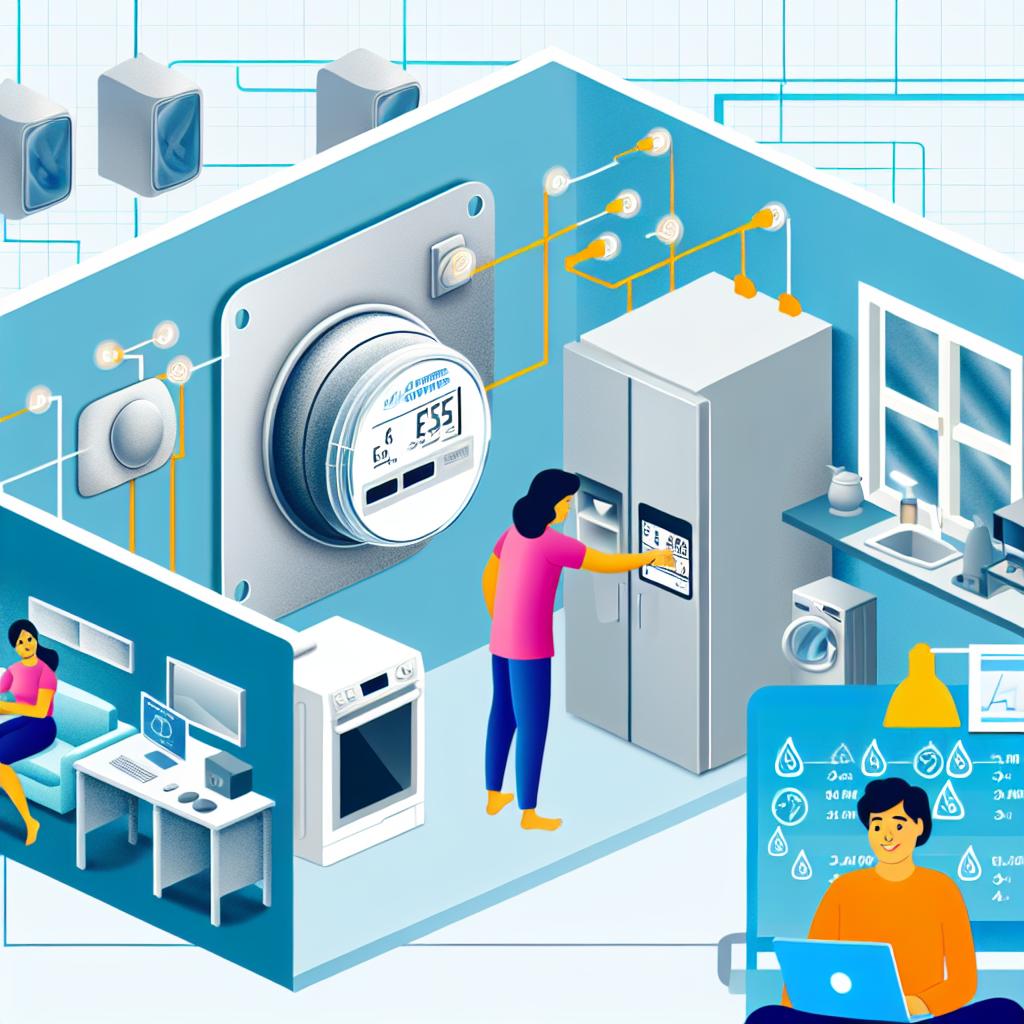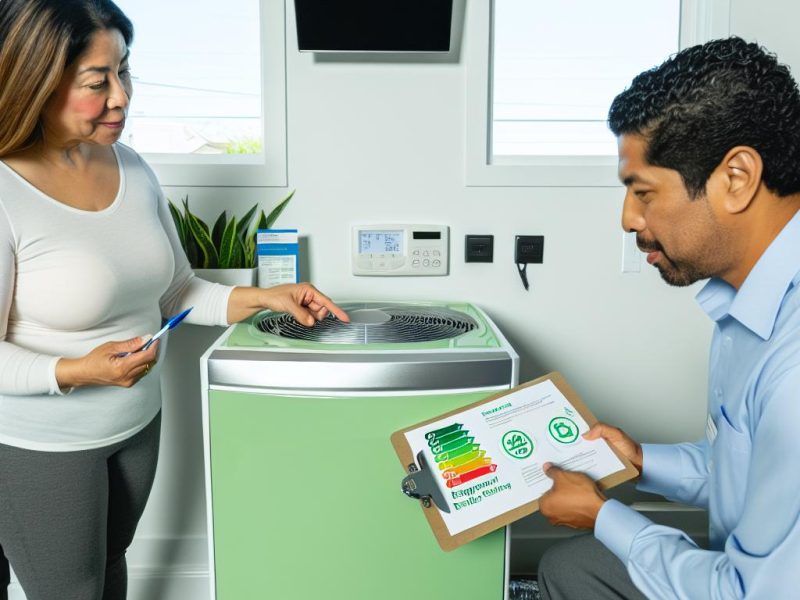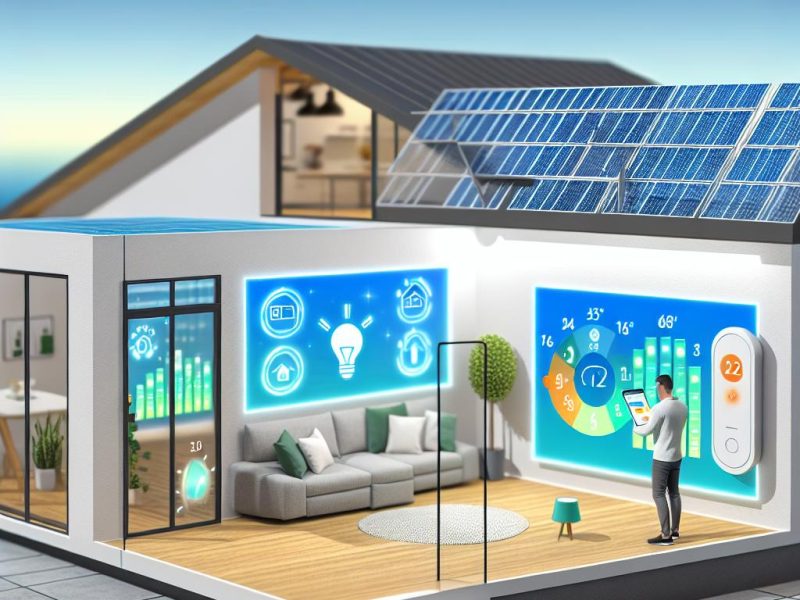The Role of Smart Meters in Energy Efficiency
In recent years, smart meters have become a crucial element in the drive towards more efficient home energy management. These innovative devices empower consumers by providing real-time data on their electricity usage, giving them a clearer picture of their consumption patterns. This increased transparency is vital in assisting consumers to make informed adjustments to their energy usage and manage costs more effectively. Smart meters achieve this by interacting with both the utility company and the household’s internal systems, facilitating precise monitoring and adjustments.
Real-Time Data and Consumer Awareness
One of the paramount benefits of smart meters is their capacity to deliver real-time data to homeowners. The insights gained from this data reveal which appliances are consuming the most energy. With this information, consumers are better equipped to make informed decisions about their energy usage, such as curtailing consumption during peak hours or identifying the devices that consume the most energy. This knowledge enables more strategic energy management, ultimately leading to reduced consumption and cost savings.
Integration with Smart Home Systems
Many smart meters are crafted to integrate seamlessly with smart home systems. This integration allows homeowners to automate their energy usage according to their personal preferences. For example, smart meters can communicate with intelligent thermostats to optimize heating and cooling schedules, ensuring maximum energy efficiency without sacrificing comfort. This synchronization ensures that smart homes not only cater to the convenience of their inhabitants but also contribute to energy conservation, optimizing usage patterns based on real-time data.
Potential Cost Savings
By harnessing the data provided by smart meters, consumers can achieve significant cost savings. One feature prevalent in many regions is peak demand pricing, where energy costs surge during periods of high demand. With a smart meter, users can strategically lower their energy consumption during these peak times to minimize costs. Moreover, the ability to monitor and adapt energy use frequently results in lower monthly utility bills, offering financial incentives for those who choose to embrace this technology.
Environmental Benefits
The environmental impact of implementing smart meters is profound. By encouraging more efficient energy usage, these devices contribute to a reduction in overall demand. This decreased demand lessens reliance on fossil fuels, consequently reducing greenhouse gas emissions. For individuals and communities committed to environmental sustainability, the adoption of smart meters is a step towards achieving their goals. To explore the integration of smart meters with renewable energy solutions in greater detail, you can visit this resource.
In summary, smart meters are instrumental in contemporary energy management practices. They provide consumers with the insights necessary to optimize their energy usage, yielding both economic and environmental advantages. As smart technology evolves and becomes increasingly sophisticated, it is expected that smart meters will become even more integral to effective energy management strategies. Embracing this technology not only positions consumers to attain financial savings but also supports global initiatives aimed at fostering more sustainable energy practices.
Technology Behind Smart Meters
The technology that underpins smart meters is both complex and innovative. At its core, a smart meter is an electronic device that records the consumption of electric energy at frequent intervals, often as rapidly as every 15 minutes. These devices are equipped with communication modules that enable them to send and receive data to utilities instantly. This bidirectional communication allows utilities to perform functions such as remote meter readings, fault detection, and the implementation of demand response programs.
Communication Protocols
Smart meters utilize advanced communication protocols to ensure smooth and efficient data transmission. Common protocols include Zigbee, GPRS, and Radio Frequency, each selected based on the specific needs of the region and the existing infrastructure. These protocols facilitate consistent and reliable data exchanges between the consumer, the meter, and the utility, forming a crucial link in the smart grid ecosystem. This connectivity is a fundamental aspect that allows smart meters to offer real-time data and analytics, setting the stage for empowered consumer energy management.
Data Security and Privacy
Given the sensitive nature of energy consumption data, smart meters are designed with robust security features to protect consumer information. Encryption and authentication mechanisms are standard to prevent unauthorized access and data breaches. Protecting this data is crucial to maintaining consumer trust and ensuring that the benefits of smart meters are realized in a secure and private manner. As smart meters become more common, ongoing advancements in cybersecurity are anticipated to further enhance data protection measures.
Facilitating Demand Response
An essential functionality of smart meters is their ability to facilitate demand response programs. Demand response is a strategy used by utilities to manage peak electricity demand by incentivizing consumers to reduce or shift their energy usage during critical periods. Smart meters enable this by providing real-time feedback to both consumers and utilities, allowing for more efficient grid management and reduced reliance on peaking power plants. This results in cost savings for utilities and promotes a more sustainable approach to energy consumption.
Future Prospects and Developments
As technology progresses, the future of smart meters looks promising. Innovations in data analytics, machine learning, and artificial intelligence are poised to enhance the functionality of these devices further. Future smart meters could offer even more refined insights into energy consumption, predicting patterns, and suggesting energy-saving measures based on historical data. Additionally, advancements in renewable energy technologies and their integration with smart grids could see smart meters playing a crucial role in managing decentralized energy production and storage.
In conclusion, smart meters have significantly transformed the landscape of energy management. With the ability to provide real-time data, integrate with smart home systems, and facilitate demand response, these devices empower consumers to use energy more efficiently and economically. As technology continues to evolve, the capabilities and applications of smart meters are likely to expand, reinforcing their role as a cornerstone of modern energy solutions.



